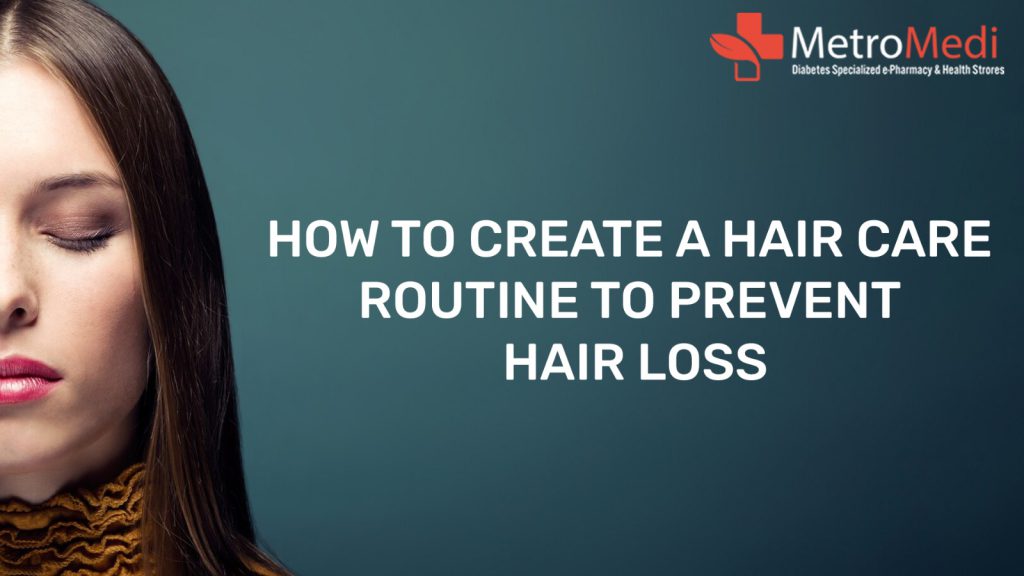
Hair loss can be distressing, but a well-rounded hair care routine can significantly help in managing and preventing it. By incorporating healthy habits, choosing the right products, and addressing potential causes, you can support your hair’s health and reduce the risk of hair loss. Here’s a comprehensive guide to creating a hair care routine that promotes stronger, healthier hair and helps prevent hair loss, with a focus on the best hair care products for all needs.
1. Understand Your Hair Type
Before building your hair care routine, it’s essential to understand your hair type and its specific needs. Whether you have curly, wavy, or straight hair, and whether your scalp is oily, dry, or balanced, will influence your product choices and routine. Knowing this will help you select the best hair care products suited to your needs.
2. Choose the Right Shampoo and Conditioner
Selecting the right shampoo and conditioner is crucial for maintaining healthy hair. For men’s hair care, look for products formulated to strengthen hair and reduce hair loss. Ingredients like biotin and caffeine can help stimulate hair follicles. For women, opt for shampoos and conditioners that provide hydration and nourishment without weighing the hair down. Consider professional hair care products for targeted treatments.
3. Incorporate Scalp Care
A healthy scalp is the foundation for healthy hair. Incorporate scalp treatments into your routine to improve circulation and support hair growth. Use a gentle scalp exfoliator once a week to remove dead skin cells and excess oil. Additionally, consider using hair fall-controlling oils or scalp serums with ingredients like rosemary, peppermint, or tea tree oil, which can stimulate hair follicles and promote a healthy scalp environment.
4. Avoid Over-Washing Your Hair
Washing your hair too frequently can strip it of its natural oils, leading to dryness and potential damage. Aim to wash your hair 2-3 times a week, or as needed based on your hair type and lifestyle. Use lukewarm water rather than hot water, which can be drying and irritating to the scalp.
5. Use a Wide-Tooth Comb
When detangling your hair, use a wide-tooth comb to minimize breakage and hair loss. Start at the ends and work your way up to gently remove knots without pulling or tugging. Avoid using brushes on wet hair, as it is more prone to breakage in its weakened state.
6. Incorporate Hair Masks and Treatments
Regularly using hair masks or deep conditioning treatments can provide your hair with essential nutrients and moisture. Opt fornatural hair care products like masks with keratin, argan oil, or shea butter to strengthen and hydrate your hair. Apply these treatments once a week or as needed based on your hair’s condition.
7. Maintain a Balanced Diet
Your diet plays a significant role in hair health. Incorporate foods rich in vitamins and minerals that support hair growth, such as leafy greens, nuts, seeds, fish, and eggs. Key nutrients include vitamin A, vitamin C, vitamin D, biotin, and iron. A well-balanced diet ensures your hair receives the nutrients it needs to stay strong and healthy.
8. Stay Hydrated
Hydration is vital for overall health, including hair health. Drink plenty of water throughout the day to keep your body and hair hydrated. Proper hydration helps maintain the moisture balance of your scalp and hair, reducing dryness and brittleness.
9. Limit Heat Styling
Excessive heat styling can damage your hair and contribute to hair loss. Limit the use of hair dryers, curling irons, and straighteners. When you do use heat styling tools, apply a heat protectant spray to minimize damage. Allow your hair to air-dry whenever possible to reduce heat exposure.
10. Protect Your Hair from Environmental Damage
Environmental factors like sun exposure, pollution, and harsh weather can affect your hair’s health. Protect your hair by wearing a hat or scarf when outdoors. Use hair products with UV protection and avoid exposing your hair to harsh chemicals or excessive chlorine from swimming pools.
11. Manage Stress Effectively
Stress can be a significant factor in hair loss. Incorporate stress management techniques into your daily routine, such as exercise, meditation, or deep breathing exercises. Managing stress helps improve overall well-being and supports healthy hair growth.
12. Consult a Professional
If you’re experiencing significant hair loss or thinning, consider consulting a dermatologist or a trichologist (a specialist in hair and scalp disorders). They can provide personalized advice, identify any underlying health issues, and recommend appropriate treatments or products to address your specific needs.
By following these tips and making informed choices, you can create a hair care routine that supports your hair’s health and helps prevent hair loss. Explore the best hair care products for men and women, including natural and professional options, to find what works best for you. Incorporate hair fall-controlling oils and other effective treatments into your routine, and embrace a holistic approach to maintaining a fuller, healthier mane.
